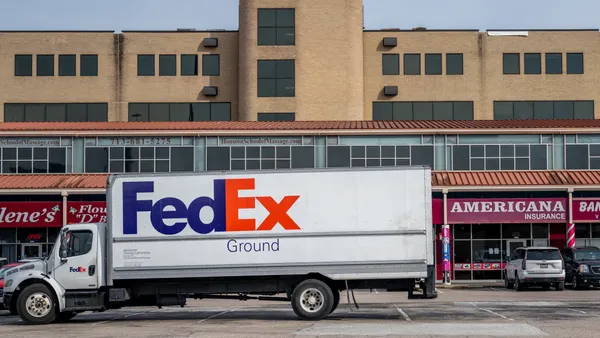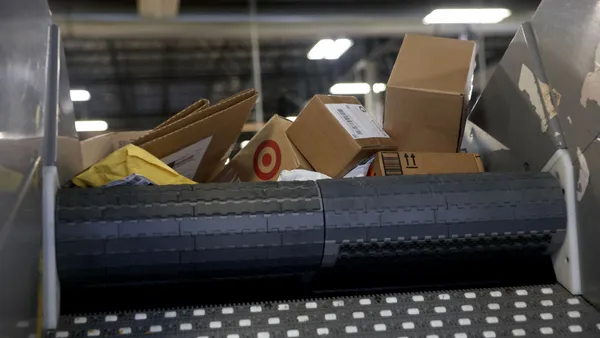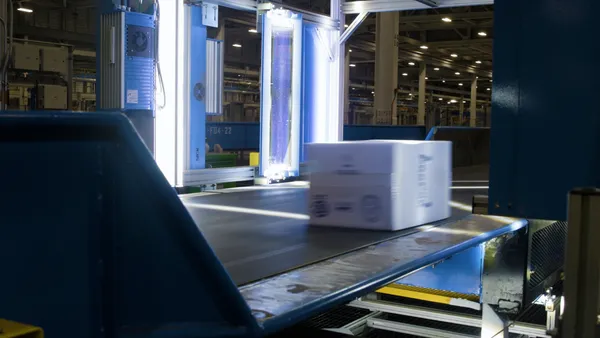Dive Brief:
- China Post, a government-operated postal service in China, and Deppon Express, a Chinese logistics company, plan to begin using autonomous vehicles for daily package delivery in April. The companies say this is the first time autonomous vehicles have been used in commercial operations in China, according to a press release.
- The two companies have been testing this capability since November 2018 when the autonomous trucks would average 40-mile round trips every day, putting them in the path of 50 different intersections. The vehicles helped to deliver more than 60,000 packages during the country's peak shopping season from Singles' Day through Chinese New Year.
- The autonomous technology was developed by FABU. The carriers' investment in the vehicles will be offset by savings on operating cost "in the long run," FABU CEO Xiaofei He said in a statement.
Dive Insight:
China Post currently has a fleet of 39,000 transport vehicles that help to cover a delivery network of more than 1.9 million miles. The carrier did not say how many autonomous vehicles it would begin using in April.
Autonomous delivery is on the radar of many U.S. carriers, but for now it's mostly taking place on the sidewalk and is not widespread. Amazon is piloting Scout in Washington, FedEx is testing its FedEx SameDay Bot this summer, and Starship Technologies is in the Bay Area.
But there have been signs of autonomous delivery moving onto America's roadways. A user on Reddit noticed an Embark autonomous truck hauling an Amazon trailer earlier this year, though neither company has been willing to discuss the partnership. Embark has been more open about other partnerships, including its work hauling refrigerators for Frigidaire.
The United States Postal Office is also actively looking into autonomous vehicles. The agency is asking for information on technology that would allow "the operator to sort and organize mail while the vehicle autonomously drives between delivery points/mailboxes," according to a recent public request for information.
America currently struggles with a truck driver shortage and some researchers expect autonomous vehicles to lower costs for logistics companies, which have shown interest in this technology for years now. The U.S. Department of Transportation is currently studying "challenges that inhibit a safe and reasonable path to full commercial integration" of autonomous vehicles. This means logistics providers will be keeping a close eye on these early efforts in China. If it goes well then expect American logistics companies to begin talking more about their plans to do the same and lobbying government agencies to allow them to do so — assuming safety concerns don't get in the way.














